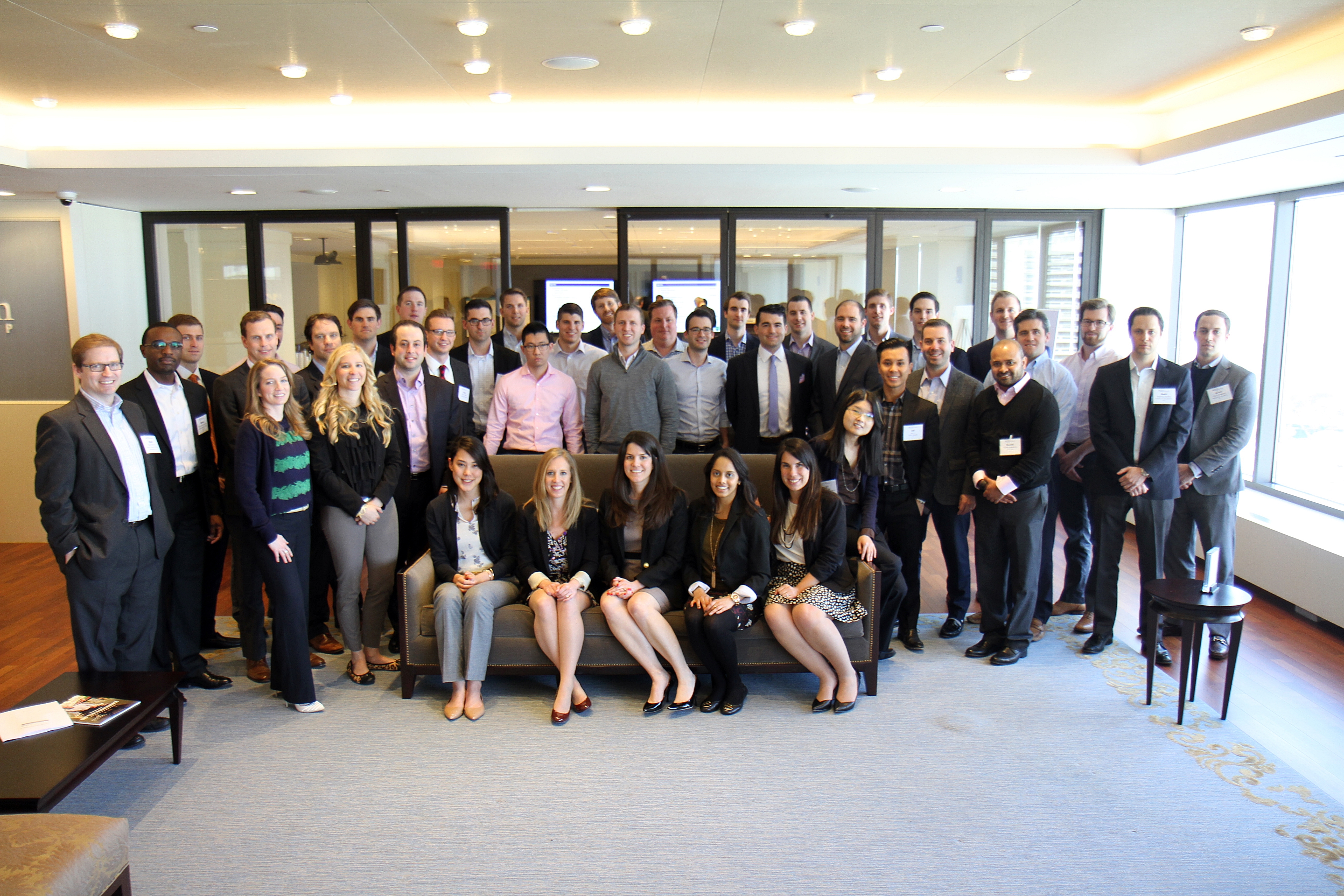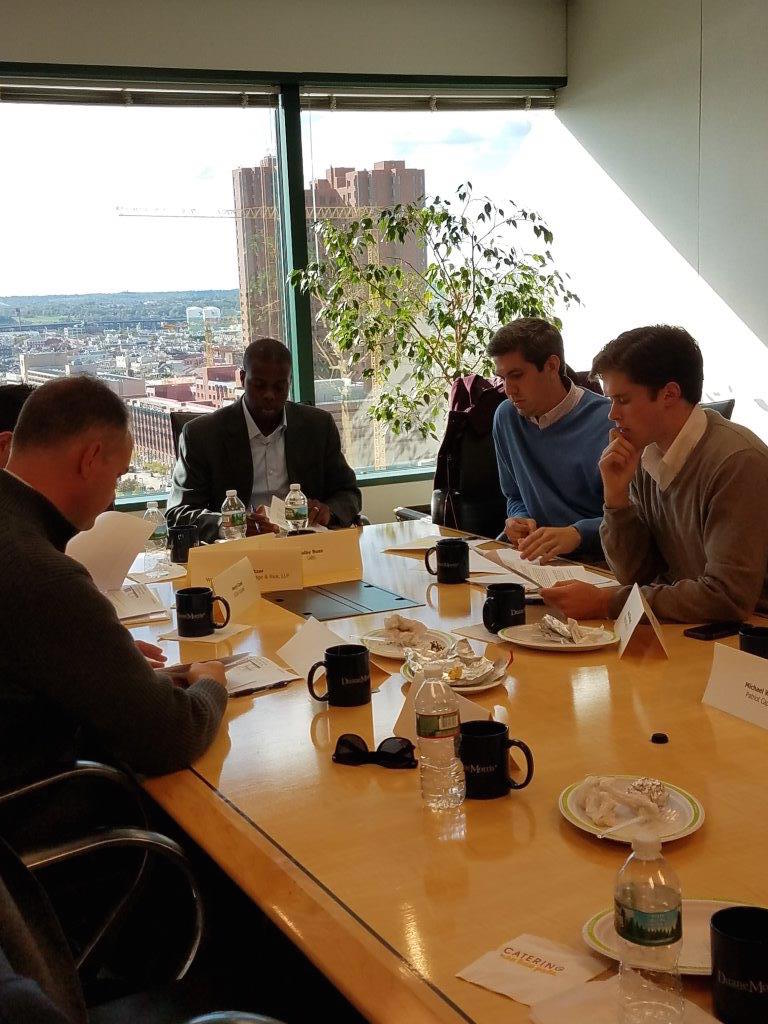ACG Gets Innovative to Attract M&A Millennials
ACG chapters across the country use innovative programs to attract and retain young professionals.

Deal Hunter. Rising Stars. ACG University. ACG Accelerator.
Those are just a few of the programs created to attract and retain younger members throughout the Association for Corporate Growth’s global network.
Membership growth is a perennial challenge for nearly all professional associations, but appealing to millennials, who are traditionally less apt to join groups than prior generations, presents a particularly tough hurdle.
According to Leslie Whittet, vice president, chapter operations at ACG Global, “It’s all about the exclusive network. Many groups can offer a digital Rolodex like LinkedIn, but ACG offers face-to-face, in-person connections through an expansive chapter structure, along with more than 1,200 events each year and access to a vast network of 15,000 professionals in the middle-market.”
“ACG is where deals get done in the middle market and whether you are an emerging professional or a seasoned dealmaker, this is a place where you can build a strong and diverse network,” she says.
Innovative programming at the chapter level is the first step in introducing would-be members to the organization, Whittet says.
Future Focus
Eric Orlinsky, president of ACG Maryland and a partner at the law firm Saul Ewing LLP, says ACG is smart to focus efforts on the younger generation of industry professionals. Starting this past fall, the chapter ran ACG University, a highly selective annual executive education program that includes industry leaders teaching a series of concentrated classes on deal process. The program, offered at several ACG chapters, has served as a powerful chapter-recruiting tool.
“We’ve been successful in recruiting by offering strong educational content,” Orlinsky says.
ACG Maryland also runs various networking events to give emerging professionals a chance to make industry connections. Some are purely social, while others have an educational focus. Aimee Yardley, the chapter’s executive director, notes: “Younger professionals are growing up in a world very different from that of our current members, and we need to develop a bridge for them to understand the value of ACG Maryland and for us to develop sensible programming that meets their needs.”
Matthew Everett, associate for SC&H Capital, an investment bank, got involved with the chapter in 2015, a few months after joining his firm. “The interesting thing about ACG is that we get to interact with other participants in the deal process, which is vital to networking,” he says. He says ACG University gave him a chance to develop a rapport with younger professionals in the space who will likely work together in the future.

The Right Mix
The ACG University program has also been a boon to ACG Philadelphia (pictured above), where it is now in its seventh year.
“The first class are now all partners, and we have two (ACG) University alumni who are on our board,” says Stephanie McAlaine, the chapter’s executive director.
About eight years ago, ACG Philadelphia began to take stock of its membership, then made up primarily of accomplished senior-level professionals.
“To keep the organization vibrant, we knew we needed to find a way to bring in the next generation of dealmakers,” McAlaine says. “The biggest challenge is to recruit people who are going to add something to ACG. Everyone should bring something to the table.”
Building Networks
At ACG Boston, a leadership program targeted at young deal professionals is helping to drive millennial membership. Chris Nicholas, vice president at Shields & Company, an investment bank, came through the first class of a three-day intensive retreat known as the ACG Boston Accelerator. Now two years old, the Accelerator taps a diverse group of more than 20 deal professionals who come together to gain leadership skills and build relationships.
Today Nicholas sits on ACG Boston’s board, helping to shape chapter events and programs for members of all ages. Not only did the Accelerator expand his network, it helped him to understand the full spectrum of players working on a deal, he says.
Danielle Prentis, senior business development officer for KeyBank Business Capital and another Accelerator participant, echoes that sentiment. “Working with professionals across the service categories—people from across the transaction—helped me to see how all of the pieces fit together,” she says.

Innovative Approaches
Christy Dancause, executive director for ACG Boston, says younger professionals offer a lot more than just additional member headcount. “The younger members bring renewed energy and ideas to help the chapters grow, adapt and innovate,” she says.
In addition to the Accelerator, ACG Boston runs quarterly icebreaker events known as Deal Hunter. They can be social or educational, ranging from Red Sox games to lectures with industry leaders. “It’s geared towards deal professionals generally in the first ten years of their career, so most of the attendees are under 40,” Dancause says, adding that three of her current board started with the chapter through Deal Hunter events.
Busy young professionals looking to climb the corporate ladder have little spare time, so the onus is on ACG to show that joining the organization is worth the effort. Josef B. Volman, president of ACG Boston and partner at the law firm Burns & Levinson LLP, says a great way to show the value of ACG is to have senior members encourage younger members in their firm to actively participate in ACG through volunteer opportunities on the chapter board and its committees.
On the West Coast, ACG Los Angeles sponsors Rising Star, a professional development program for the under-30 crowd that helps grow their M&A network. Now in its fifth year, participants meet every other month from September to July to hone skills such as perfecting a pitch and marketing oneself within the ACG network.
A significant number of Rising Star graduates end up joining ACG, says Bill Webster, the chapter’s CEO. In a business based on referrals, the chapter serves as a conduit to connect with peers and find deals. “(Members) end up creating a referral source for one another,” he says. “Networking isn’t taught in school.”


